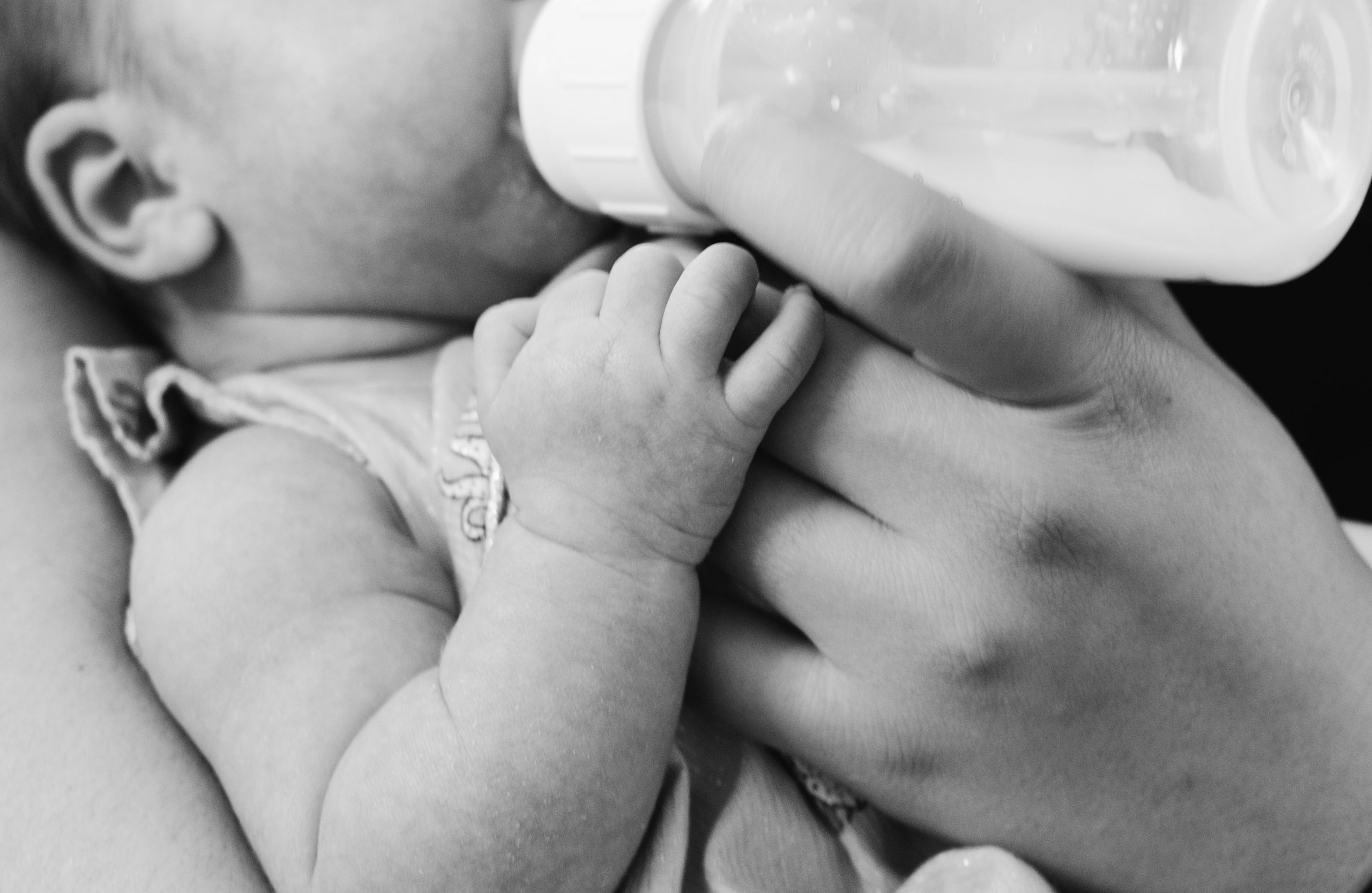Top image: Photo by Kelly Sikkema on Unsplash
Hwans Lim, a 31-year-old mum and product designer, had a difficult breastfeeding experience after her childbirth last year.
The first 72 hours were harrowing—she was unable to get her baby to latch properly. Hwans feared for her baby’s life as she was told that child was starving.
ADVERTISEMENT
Eventually, she got her baby to latch, but doctors told her that the baby was still losing an alarming amount of weight. What the nurses and Hwans failed to realise was that her baby was comfort latching, a process in which the baby succeeds in gripping onto their mother’s nipple without ingesting any breastmilk.
Hwans is not the only one to experience this. It is, in fact, extremely common for many mums to need a little bit of help in the breastfeeding department.
Dr Seng Shay Way, a doctor in Obstetrics & Gynaecology at Raffles Medical Group, shares that “half [his] patients can’t breastfeed, and that’s normal”.
But with a generation raised by media coverage obsessed with the idea of pushing the ‘Breast is Best’ agenda, this can be a terrifying and humbling fact for many new mothers.
Pop culture exacerbates this belief through scenes in movies and TV series, where nurses hold a mother’s hand while her baby happily suckles away. The reality is vastly different—in a short amount of time, a new mum is often pushed to take multiple decisions to provide sustenance for a new human, all while feeling exhausted and hormonal.

What surprises me most about Hwans’s story is the lack of transparency she received from hospital staff. Still, when it came to feeding, Hwans tried to do everything she could for it to work.
“The thing is, we never knew that she wasn’t latching,” Hwans says as she explains the first few nights of motherhood to me.
As the days passed, Hwans’s baby continued to lose weight. The red flag for her was when the lactation consultant mentioned how her baby could have jaundice.
Suboptimal intake jaundice is characterised by the yellowing of the skin and whites of the eyes, and occurs when newborns may not be receiving optimal milk intake.
When I ask whether she received sufficient guidance from medical staff, Hwans admits that talking to her lactation consultant felt like going in circles.
“She was just reading off a book,” Hwans recalls. “I would ask a question like, ‘how much is my baby supposed to eat?’ and I’d be told to just go read a book for an answer.”
As a new mum, this gave her little clarity or confidence, leaving her feeling even more confused about what to do next.
Post-partum care involves two key personnel in the hospital, the paediatric doctor and the lactation consultant. In Hwans’s case, they did very little to educate her about alternative feeding options.
“Why? You have the breastmilk. We try again okay. We try.”
The paediatric doctor mentioned formula as an option in “a very nonchalant way,” Hwans recalls, admitting that she wasn’t aware that formula could be requested following childbirth in a hospital. She thought it was something you could only substitute for at home.
ADVERTISEMENT
Furthermore, when she mentioned the possibility of formula to her lactation consultant, she replied: “Why? You have the breastmilk. We try again okay. We try.”
“The lactation consultant decided for me, and I took it, which was also my fault,” Hwans shares. This decision would cause Hwans three sleepless, stress-filled and physically painful nights of attempting to feed her baby with little to no success.
On day four, when she was ready to leave the hospital, bags packed, and finally showered, the paediatric doctor came in to tell them they had two options.
One was to bring the baby home, but they would have to come back to weigh the baby again as she was underweight. And the second option, which was heartbreaking news for Hwans, was to leave the baby in the hospital because of the jaundice diagnosis.
The doctor presented all of this in an overly lightheartedly manner and quipped, “You should be happy. most people would be happy to leave their baby here!”
After the doctor left the room, Hwans burst into tears. “I was constantly trying to provide [breastmilk] and yet not being able to,” she says. “Not to mention the pain, only to realise we still failed.”
The Expected Difficulty of Breastfeeding
While some mums find it physically strenuous and difficult to breastfeed, it’s not the only reason why breast is not always best. In many instances, the practical process of breastfeeding makes it inconvenient for many Singaporean mothers.
Jayne Tan, a 33-year-old who works in the UX industry, looks at me over the fuzzy head of her newborn suckling on her breast and begs the question, “Yes, you breastfeed after giving birth, but do you actually know what that means or what it entails?”
Jayne’s story is almost a yin-and-yang contrast from Hwans’. While scheduling our interview, I ask the first-time mum what time would be best to meet, and she tells me, “I know you won’t mind my boobs out, so no specific time on my end.”
Sure enough, as we start chatting at her newly baby-proofed flat, Theo starts suckling down his lunch.

“I expected to have a lot of trouble with breastfeeding,” Jayne begins. I furrow my brows and ask her why. “Because, generally, people do.”
She goes on to explain how she prepared herself for all possibilities when she had her child earlier this year. “I read up as much as I could about breastfeeding and everything post labour, to at least arm myself with the knowledge and to prepare myself for what could happen with my body.”
Similar to what Hwans experienced, Jayne’s lactation consultant gave her “a list of instructions and told me it was all in the book.” When she struggled to breastfeed, she told Jayne “to keep trying,” which she took as words of encouragement. After all, if it didn’t happen, Jayne was prepared to switch to formula milk, which she knew was a viable and safe alternative.
She tells me that many mums have called her approach “very chill”. But I came to realise that she was actually just prioritising both baby and mum, a concept often absent in local mummy culture.
Jayne’s water broke prematurely, which led her to give birth in the middle of the night. By the time she delivered, she was exhausted and needed rest. She opted to leave her baby in the nursery overnight rather than struggle to immediately attempt breastfeeding.
“I knew I didn’t mind feeding my baby formula milk. I wanted to balance my sanity as well,” she explains. “Many people feel guilty about choosing this as an option for themselves.”
While she was comfortable with her decision to feed her newborn formula, she did face resistance from those around her.
One paediatric doctor made an inappropriate remark the morning after she gave birth. “Last night… you gave up ah,” he said, a comment Jayne chose to ignore. Subsequently, they had an open conversation about finding a practical approach to getting the baby’s weight to where it needed to be.
Their joint consensus was to keep attempting to breastfeed as much as possible, and where it wasn’t sufficient, topping up with formula and adjusting along the way.
In hindsight, Jayne believes her ability to make levelheaded choices post-birth stemmed from the extensive reading and podcast listening she did in preparation. Thanks to this, she learned to let go of the many expectations around breastfeeding.
“It’s very easy to be overwhelmed,” she explains. “Just know that whatever decision you make is fine, your baby will be okay.”
Now, Jayne breastfeeds at home since she can get her baby to latch. At the same time, she continues to be open to using formula as a backup in case she suddenly starts producing less milk.
It gives her peace of mind, she tells me.
To Empower Without Judgement
While Jayne and Hwans had such contrasting experiences, they were both left wondering why there wasn’t better communication between themselves, the paediatric doctor, and the lactation consultant regarding the balance of breastfeeding and formula milk.
Undoubtedly, breastmilk holds many benefits. It is a natural source of protein, nutrients and antibodies and is very easy to digest for the baby. It is also proven to reduce the risk of a baby becoming overweight.
However, through my conversation with Dr Seng, I discover more about why breastfeeding is pushed so hard in hospitals.
In the ’90s, UNICEF spearheaded a breastfeeding initiative in developing countries. Because formula was still highly likely to be contaminated by unsafe water sources in many countries, breastfeeding was encouraged.
This initiative was then brought over to developed countries like Singapore, and is now part of the hospital accreditation process—an established set of standards and industry practices for the safety of patients.
“Because of this, breastfeeding has to be enforced to the point that it can sometimes come across as militant,” Dr Seng explains. “They will try to encourage and sometimes force mothers to breastfeed. Hospitals are not allowed to promote formula milk for newborn infants.”

Looking back on what Jayne and Hwans told me, it is clear that this initiative hinders a more open discussion between doctors and mums—resulting in multiple traumatic experiences while breastfeeding.
“Usually, they won’t tell the patient [that formula is available]. That is usually at the nurses’ discretion,” Dr Seng adds. “But off the cuff, a lot of doctors are not really on board with this programme.”
“To me, the key is to empower mothers so they know what they can ask for,” Dr Seng adds. “They should know that if they can’t breastfeed, they can ask for formula. I think that’s important, to empower the mothers and arm them with information.”
Over a year since having her first child, Hwans tells me that she wants to use her experience to advocate for open conversations with other mums in the hopes that they don’t have to go through what she did.
Now, her only stance is that “fed is best.”
“If you say that to a mum, they will understand.”






